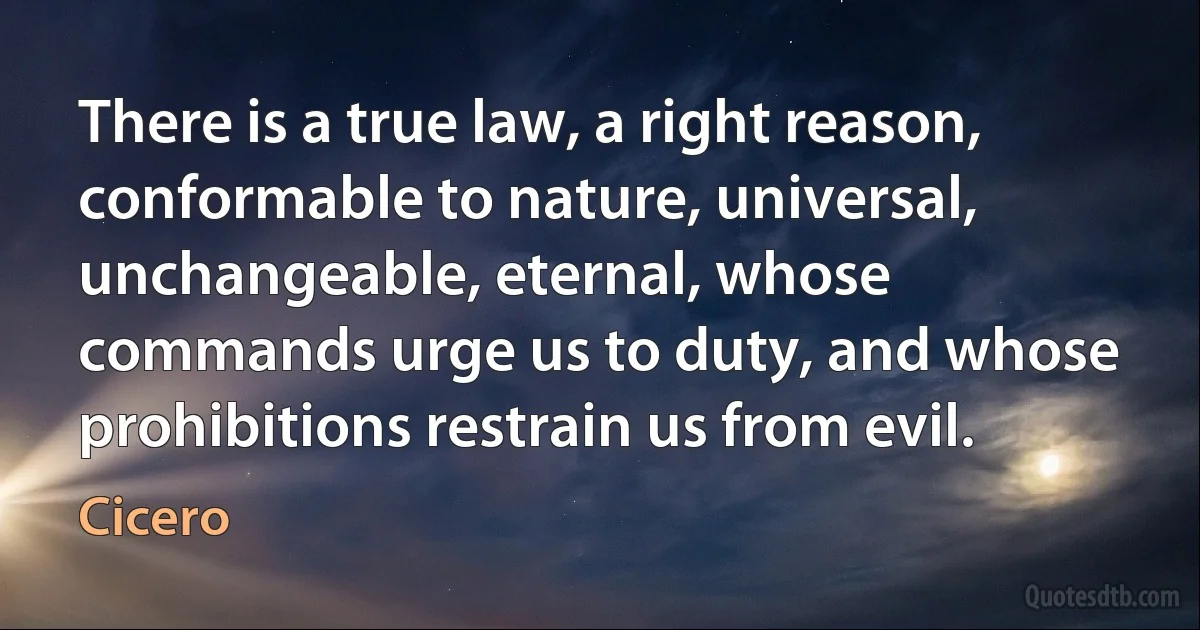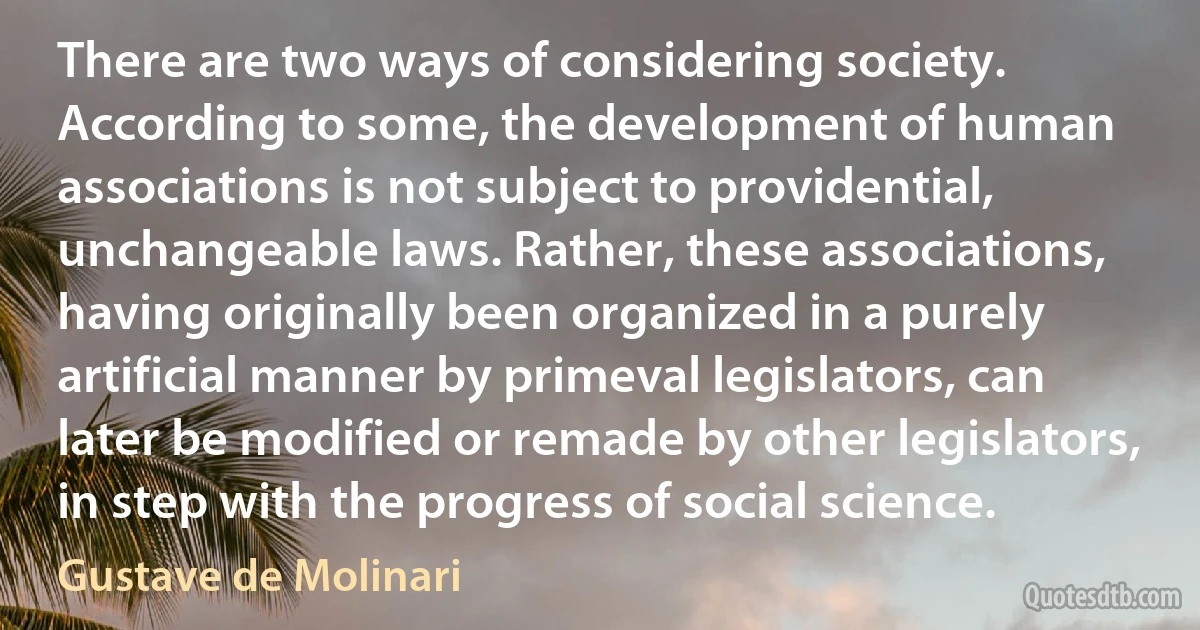Unchangeable Quotes - page 3
The whole of evolution, in fact, is an evolution from unconscious divinity to conscious divinity, in which God Himself, essentially eternal and unchangeable, assumes an infinite variety of forms, enjoys an infinite variety of experiences and transcends an infinite variety of self-imposed limitations.

Meher Baba
Heredity is not the dark specter which some people have thought-merciless and unchangeable, the embodiment of Fate itself. This dark, pessimistic belief which tinges even the literature of to-day comes, no doubt, from the general lack of knowledge of the laws governing the interaction of these two ever-present forces of heredity and environment wherever there is life.
My own studies have led me to be assured that heredity is only the sum of all past environment, in other words environment is the architect of heredity; and I am assured of another fact: acquired characters are transmitted and-even further-that all characters which are transmitted have been acquired...

Luther Burbank
In the same way he wills that his creation shall develop itself in time and space and sequence, but he creates these conditions as well as the events. He creates the whole, in one act, complete, unchangeable, and it is then unfolded like a rolling panorama with its predetermined contingencies.

Henry Adams
Parmenides believed that all Being is what he called the One, and denied absolutely the possibility of change. He believed that the cosmos is full (i. e., no void), uncreated, eternal, indestructible, unchangeable, immobile sphere of being, and all sensory evidence to the contrary is illusory. One Parmenidean fragment stated, "Either a thing is or it is not," meaning that creation and destruction is impossible.

John Freely
That which enables man to have a real relation to truth and which removes his temptation to lie, must be something independent of all time, something absolutely unchangeable, which as faithfully reproduces the old as if it were new, because it is permanent itself; it can only be that source in which all discrete experiences unite and which creates from the first a continuous existence. It is what produces the feeling of responsibility which oppresses all men, young and old, as to their actions, which makes them know that they are responsible, which leads to the phenomena of repentance and consciousness of sin, which calls to account before an eternal and ever present self things that are long past, its judgment being subtler and more comprehensive than that of any court of law or of the laws of society, and which is exerted by the individual himself quite independently of all social codes.

Otto Weininger
All is madness. And there is no one who will dare to rise and say that all is not madness, and that the future does not so appear - as fatal and unchangeable as a memory.
But how many men will there be who will dare, in face of the universal deluge which will be at the end as it was in the beginning, to get up and cry "No!" who will pronounce the terrible and irrefutable issue: -
"No! The interests of the people and the interests of all their present overlords are not the same.

Henri Barbusse
And if there were miracles wrought then, why has God ceased to be a God of miracles and yet be an unchangeable Being? And behold, I say unto you he changeth not; if so he would cease to be God; and he ceaseth not to be God, and is a God of miracles.
And the reason why he ceaseth to do miracles among the children of men is because that they dwindle in unbelief, and depart from the right way, and know not the God in whom they should trust. Jesus doesn't do miracles any more because everyone has dwindled in unbelief.
Behold, I say unto you that whoso believeth in Christ, doubting nothing, whatsoever he shall ask the Father in the name of Christ it shall be granted him; and this promise is unto all, even unto the ends of the earth.

Jesus Christ
That which enables man to have a real relation to truth and which removes his temptation to lie, must be something independent of all time, something absolutely unchangeable, which as faithfully reproduces the old as if it were new, because it is permanent itself; it can only be that source in which all discrete experiences unite and which creates from the first a continuous existence. It is what produces the feeling of responsibility which oppresses all men, young and old, as to their actions, which makes them know that they are responsible, which leads to the phenomena of repentance and consciousness of sin, which calls to account before an eternal and ever present self things that are long past, its judgment being subtler and more comprehensive than that of any court of law or of the laws of society, and which is exerted by the individual himself quite independently of all social codes (so condemning the moral psychology which would derive morality from the social life of man).

Otto Weininger
Only the passive, only those who accept their lot without active retaliation, are "flawless." Most of us are in that category.
But there are among us today, as there always have been, those who act against the scheme of things that degrades them, and in the process of action everything we have accepted out of fear of insensitivity or ignorance is shaken before us and examined, and from this total onslaught by an individual against the seemingly stable cosmos surrounding us - from this total examination of the "unchangeable" environment - comes the terror and the fear that is classically associated with tragedy. More important, from this total questioning of what has previously been unquestioned, we learn.

Arthur Miller
There are those who would deny a distinction between England and the continent of Europe, alleging that the island is in every respect – politically, socially, culturally – a part of Europe. This is an opinion that could be held only by those whose knowledge of the continent is derived from books and from visits; anyone who has actually ever lived there knows how fundamental those differences are. Or perhaps one should say, how fundamental they were; possibly they have in the last thirty years been disappearing together with an England that was real, and apparently unchangeable, at any rate down to 1939.

Geoffrey Elton



